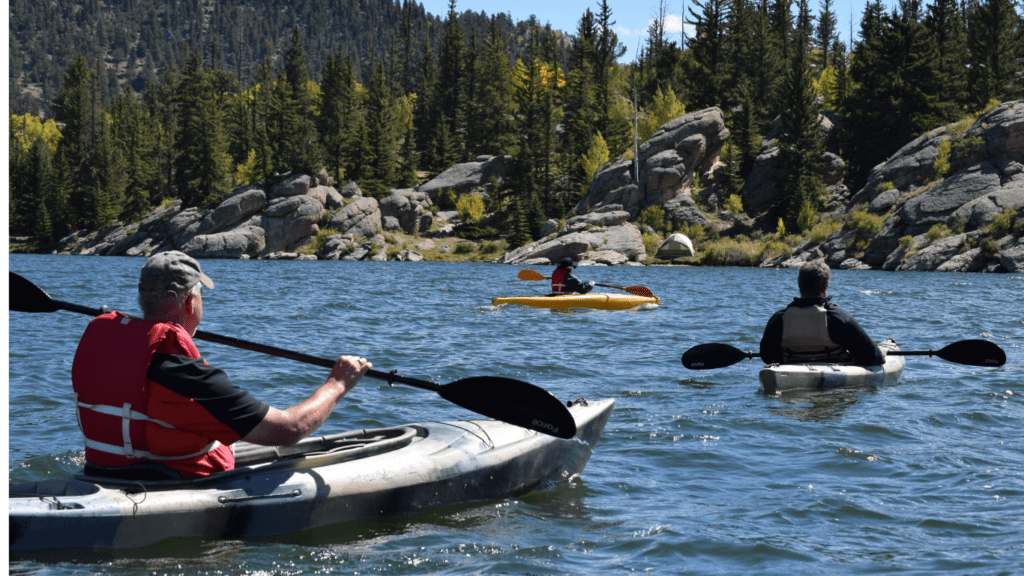Understanding Eco-Tourism
Eco-tourism focuses on responsible travel to natural areas, conserving the environment, and improving the well-being of local communities. It’s all about making thoughtful decisions to reduce your environmental footprint.
Definition and Principles
Eco-tourism, as defined by the International Ecotourism Society, involves responsible travel to natural destinations. This includes minimizing impact, building environmental awareness, and providing direct financial benefits for conservation. Key principles encompass:
- Conservation: Protecting natural habitats and wildlife.
- Community Involvement: Engaging local communities in sustainable practices.
- Education: Promoting awareness about environmental issues and cultural heritage.
- Minimal Impact: Using resources responsibly and reducing waste.
- Economic Support: Ensuring local communities benefit financially from tourism.
Importance of Sustainable Travel
Sustainable travel maintains ecological balance and benefits local economies. It promotes long-term conservation efforts and preserves natural resources.
For example, choosing eco-friendly accommodation reduces energy use, while supporting local businesses stimulates economic growth. Sustainable travel ensures destinations remain vibrant for future generations to enjoy.
Preparing for Eco-Friendly Travel
Responsible eco-tourism starts before you leave home. Thoughtful preparation ensures minimal environmental impact and enriches the travel experience.
Choosing Sustainable Destinations
Selecting the right destination is crucial. Look for places with strong environmental policies and community-based tourism initiatives. Countries like:
- Costa Rica
- Bhutan
- New Zealand
actively promote sustainable travel. Check if accommodations bear certifications like Green Key or EarthCheck, indicating eco-friendly practices. Opt for regions where tourism supports local conservation efforts and enriches the community.
Packing Eco-Consciously
Pack light to reduce carbon emissions from transport. Prioritize reusable items like water bottles, shopping bags, and utensils. Choose biodegradable soaps and shampoos to avoid contaminating local water sources.
When packing clothes, prefer organic cotton or eco-friendly materials. Look for gear that’s durable and multifunctional, limiting waste. By making these choices, I reduce my footprint, making my trip more sustainable.
Engaging Responsibly During Your Trip

Responsible engagement during trips demands conscious choices with a focus on sustainability and respect.
Transportation: Minimizing Your Carbon Footprint
Opt for public transportation, bicycles, or walking to reduce your carbon footprint. When renting cars, choose fuel-efficient models or electric vehicles. Carbon offset programs help offset emissions from flights. Use direct flights as they produce fewer emissions compared to connecting flights.
Activities: Respecting Nature and Local Cultures
Engage in activities that respect natural environments and cultural heritage. Choose tours led by local guides who adhere to eco-friendly practices.
Avoid disturbing wildlife, maintain safe distances, and never feed animals. Participate in community-based activities that support local economies. Engage in educational experiences to learn about local traditions and environmental conservation efforts.
Supporting the Local Economy
Eco-tourism includes boosting the local economy by making mindful choices. Supporting local businesses not only enriches the experience but also contributes to the community.
Choosing Local Accommodations and Eateries
Choosing local accommodations and eateries has multiple benefits. Locally owned lodgings, like boutique hotels and bed-and-breakfasts, add personal touches and ensure money stays within the community. Local eateries offer authentic culinary experiences and boost local food production.
For instance, I stayed at a family-run guesthouse in Costa Rica. It provided a unique experience and I knew my money supported a local family. Additionally, dining at street food stalls or small restaurants in Thailand introduced me to the country’s diverse flavors and directly supported small business owners.
Buying Locally Made Products
Purchasing locally made products helps artisans and reduces the carbon footprint of imported goods. Handcrafted items, like jewelry and textiles, often reflect the region’s culture and traditions.
On a trip to Mexico, I bought handmade pottery from a local market. These items were not only beautiful and unique but also supported local craftspeople.
When I travel, I seek out markets and shops offering locally produced goods, ensuring that my purchases have a positive impact on the local economy. Buying directly from artisans ensures they receive fair compensation and motivates the continuation of traditional crafts.
After Your Trip: Continuing Eco-Friendly Practices
There are ways to maintain eco-friendly habits even after your journey ends. Sharing your experiences and advocating for sustainable practices helps create a positive impact long after you return home.
Sharing Your Experiences Responsibly
Share your eco-friendly travel stories to inspire others. Highlight sustainable choices you made, like using public transport or opting for eco-friendly accommodations.
Post photos of your low-impact activities, such as hiking on marked trails or engaging in volunteer tourism. Share budget-friendly tips for eco-conscious travel to show it’s achievable for all.
Always provide accurate information, giving credit to local businesses and organizations that supported your sustainable trips.
Advocating for Sustainable Practices
Promote sustainable travel practices within your community. Join or create local groups focused on environmental conservation. Attend town meetings and advocate for eco-friendly tourism initiatives.
Write articles or blog posts about the importance of responsible travel. Support policies favoring sustainability in tourism, such as reduced emissions or sustainable infrastructure.
Partner with organizations to help disseminate educational materials on eco-tourism. Engage with social media to reach a broader audience and raise awareness about the benefits of eco-tourism.
 Edward Kindler - Eco-Tourism Advocate & Contributor at Green Commerce Haven
Edward Kindler is a passionate eco-tourism advocate and a dedicated contributor to Green Commerce Haven. With a background in sustainable travel and a deep love for nature, Edward specializes in sharing insights on eco-tourism tips and environmentally responsible travel practices. His expertise helps guide readers in exploring the world while minimizing their environmental impact. Edward’s contributions to Green Commerce Haven reflect his commitment to promoting travel experiences that honor and protect the natural world.
Edward Kindler - Eco-Tourism Advocate & Contributor at Green Commerce Haven
Edward Kindler is a passionate eco-tourism advocate and a dedicated contributor to Green Commerce Haven. With a background in sustainable travel and a deep love for nature, Edward specializes in sharing insights on eco-tourism tips and environmentally responsible travel practices. His expertise helps guide readers in exploring the world while minimizing their environmental impact. Edward’s contributions to Green Commerce Haven reflect his commitment to promoting travel experiences that honor and protect the natural world.
